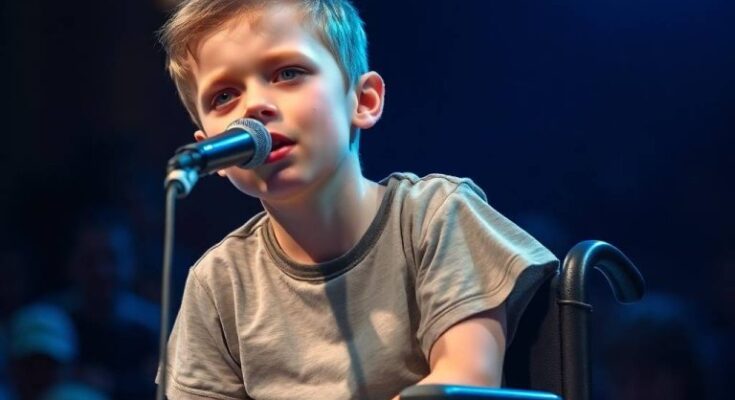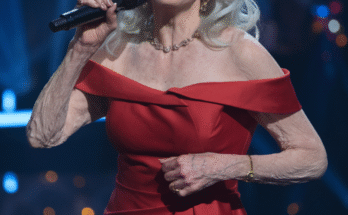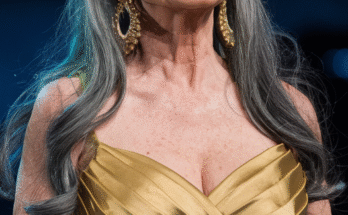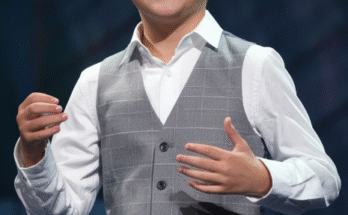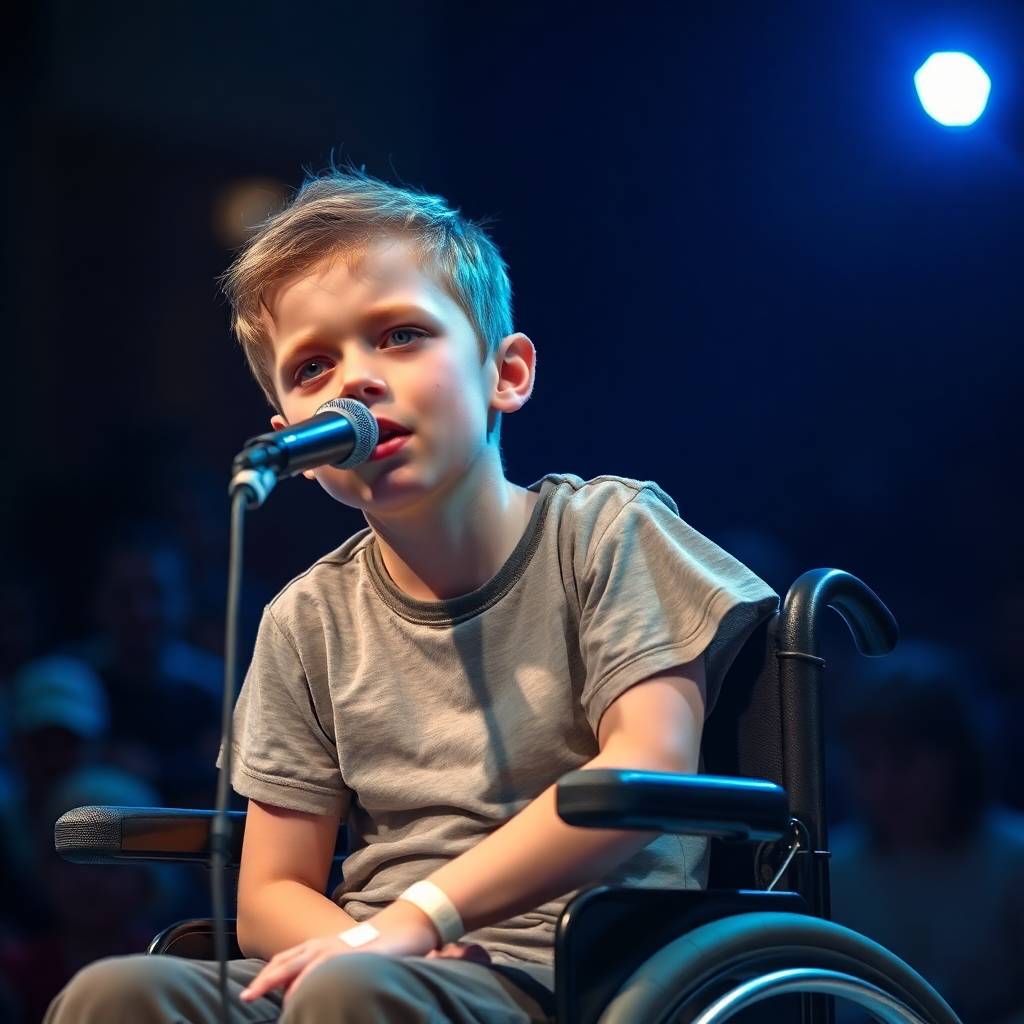 At first glance, no one in the audience expected much. The spotlight revealed a young boy in a wheelchair, hands trembling slightly as he gripped the microphone. His shirt hung loosely on his small frame, his expression somewhere between nervous and determined. The judges watched with curiosity — not skepticism, but quiet concern. It was a setup that seemed all too familiar: a vulnerable child, a silent room, and a thousand assumptions.
At first glance, no one in the audience expected much. The spotlight revealed a young boy in a wheelchair, hands trembling slightly as he gripped the microphone. His shirt hung loosely on his small frame, his expression somewhere between nervous and determined. The judges watched with curiosity — not skepticism, but quiet concern. It was a setup that seemed all too familiar: a vulnerable child, a silent room, and a thousand assumptions.
And then he opened his mouth.
The first note barely touched the air — soft, delicate, barely more than a whisper. But within seconds, it became something else entirely. The boy’s voice didn’t rise in volume. It rose in power.
It was the kind of voice that doesn’t scream for attention but demands it anyway — raw, haunting, filled with the kind of emotion that comes only from lived experience. He wasn’t just singing a song. He was telling his story. A story that no one in that room had expected to hear from someone so young… or so broken.
The lyrics spoke of struggle. Of loneliness. Of quiet prayers whispered at night when no one was listening. But also of hope — a hope so deeply buried it could only be found in music.
The camera panned across the audience. People weren’t just watching; they were feeling. A mother clutched her chest. A teenager wiped away a tear. One of the judges leaned in closer, visibly affected. It wasn’t just about the voice anymore. It was about the truth pouring out of this little boy’s soul.
As the song continued, the strength in his voice grew. You could hear years of emotion in every line — pain, yes, but also defiance. He wasn’t asking for pity. He was offering something greater: a piece of his heart.
And then came that moment — the note that soared above everything else. It wasn’t technically perfect, but it didn’t need to be. It was pure, and it carried the weight of someone who had suffered, survived, and still believed in something better.
When he finished, there was no immediate applause. Just silence — the kind of silence that says, “We’re still processing what we just witnessed.”
Then, one person stood.
Then another.
Soon, the entire room was on its feet.
The judges were in tears. One of them said softly, “You reminded us what this stage is truly about.”
The boy didn’t smile widely. He just nodded — as if he knew the impact he had made. Maybe for the first time, people weren’t seeing his chair. They were seeing him.
It started so gently. So quietly. But by the end, the entire theater had been swept away by a wave of emotion no one saw coming.
And that’s the power of moments like this — when talent and truth collide in the most unexpected places… and leave the world changed.

